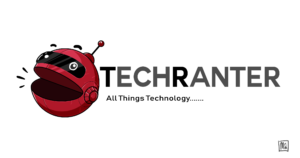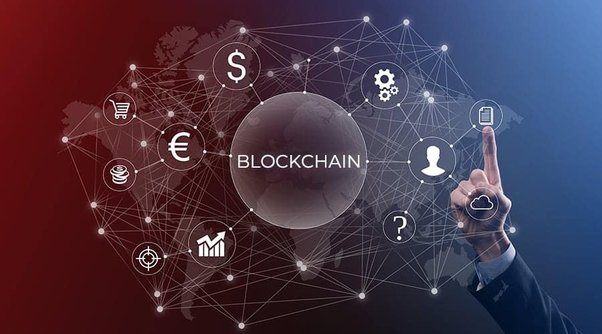One of the biggest technological stories of the last ten years is blockchain. Yet, although everyone is talking about it, blockchain’s actual meaning and operation sometimes need to be more obscured beneath the surface chatter.
Although blockchain is renowned for impenetrable, its core concept is relatively straightforward. Additionally, it has the power to transform entire industries completely.
Blockchain is a technology that enables secure information sharing. Data are stored in a database. An account book where transactions are recorded is called a ledger.
The use of blockchains, a type of distributed database or ledger, is one of the newest technological advancements.
This suggests that a public or private computer’s nodes, or participants, share the power to update a blockchain.
“Distributed ledger technology,” or DLT, refers to this. Digital tokens or money are used as incentives to encourage nodes to update blockchains.
Blockchain makes it possible to record data and transactions permanently, transparently, and immutably. Consequently, this enables the trade of anything with value, whether a tangible object or something less so.
Read Also: The Impact of robotics on the manufacturing industry
3 Main Features of Blockchain
1. A blockchain database must, first and foremost, be cryptographically secure.
Therefore, two cryptographic keys are required to access or add data to the database: a public key, which is essentially the database address, and a private key, which is a unique key that the network must verify.
2. Blockchain technology is now a disruptive force across several sectors, and it will significantly influence programming in the future.
3. Blockchain’s decentralized and transparent nature has the potential to revolutionize the way software applications are developed, deployed, and maintained.
13 IMPACTS OF BLOCKCHAIN TECHNOLOGY ON THE FUTURE OF PROGRAMMING
1. Smart Contracts and Decentralized Applications (DApps)
Blockchain technology introduced the concept of smart contracts, which are self-executing agreements with predefined rules and conditions.
Smart contracts enable developers to create decentralized applications (DApps) on blockchain networks. These applications eliminate the need for intermediaries and allow direct peer-to-peer transactions.
The future of programming will witness a surge in DApp development as blockchain provides a secure and transparent environment for executing complex business logic without relying on a centralized authority.
2. Enhanced Security and Trust
Security is paramount in software development, and blockchain technology offers a robust solution.
Blockchain provides an immutable and tamper-proof ledger using cryptographic techniques and decentralized consensus algorithms. This inherent security feature enhances trust among developers and users.
In the future, programming practices will integrate blockchain-based security measures, such as data encryption, decentralized identity management, and secure access controls, to ensure the integrity and confidentiality of applications.
3. Distributed Data Storage
Traditional programming architectures often rely on centralized databases, which can be vulnerable to security breaches and single points of failure.
Blockchain technology introduces distributed data storage, where data is replicated across multiple nodes in a network. This decentralized storage mechanism improves data resilience and enhances fault tolerance.
In the future, programming paradigms will evolve to leverage blockchain’s distributed data storage, enabling developers to build highly available and reliable applications.
Read Also: The Benefits of learning a new programming language as an experienced developer
4. Tokenization and Cryptocurrencies
Blockchain technology helps in the creation of digital tokens and cryptocurrencies. These tokens can represent ownership of assets, facilitate micropayments, and incentivize user participation within applications.
The integration of tickets into programming frameworks will enable developers to design innovative business models and monetization strategies.
In the future, programming will incorporate blockchain-based tokenization frameworks, allowing developers to create value-based ecosystems and facilitate new forms of digital economies.
5. Interoperability and Integration
Blockchain networks are typically fragmented, with different protocols and standards. However, interoperability initiatives such as cross-chain bridges and protocols are being developed to connect other blockchains.
As a result, the future of programming will witness the integration of multiple blockchain platforms, enabling developers to create applications that can interact seamlessly with different blockchain networks.
This interoperability will open up new possibilities for cross-chain asset transfers, decentralized exchanges, and collaborative development efforts.
6. Transparent Governance Models
Blockchain networks often implement decentralized governance models, making decisions through consensus and community voting.
This transparent governance structure ensures that a single entity or a small group of individuals does not control programming decisions.
In the future, programming frameworks will adopt similar governance models, allowing developers and users to participate in decision-making processes and making software development more democratic and inclusive.
7. Scalability and Performance Improvements
Early blockchain networks faced scalability and performance limitations, but ongoing research and development efforts are addressing these challenges.
Future programming will leverage improved consensus algorithms, such as proof-of-stake (PoS) and sharding.
These advancements will enable the development of highly scalable blockchain-based applications capable of handling many users and complex workflows.
8. Decentralized Web (Web 3.0)
The future of programming is closely tied to the vision of the decentralized web, often called “Web 3.0.”
Blockchain technology is fundamental in realizing this vision by providing a decentralized infrastructure, identity management, and secure data exchange protocols.
Web 3.0 aims to empower users by returning control of their data and digital identities, enabling peer-to-peer interactions, and eliminating reliance on central authorities.
Programming for Web 3.0 will involve integrating blockchain technology with other emerging technologies, such as decentralized storage, decentralized computing, and decentralized identity systems.
This integration will enable the development of genuinely decentralized and censorship-resistant applications where users have complete control over their data and privacy.
9. Collaborative Development and Open Source
Blockchain technology promotes collaboration and open-source development.
For example, smart contracts and DApps are often built using open-source frameworks and libraries, allowing developers worldwide to contribute and improve existing codebases.
In the future, programming will witness increased collaboration and sharing of code, leading to faster innovation and higher-quality applications.
In addition, using blockchain-based incentive mechanisms, such as token rewards and bounties, will encourage developers to contribute their expertise to open-source projects.
10. Auditable and transparent codebases
Transparency is a fundamental principle of blockchain technology. Smart contracts and applications are stored on the blockchain, making their code publicly accessible and auditable.
This transparency enhances security and trust and promotes higher coding standards and quality assurance practices.
In the future, programming methodologies will include auditing and reviewing intelligent contracts and blockchain codebases to ensure their correctness, efficiency, and compliance with desired business logic.
11. Disintermediation and New Business Models
Blockchain technology can disrupt traditional intermediaries in various industries, including finance, supply chain, real estate, etc.
Eliminating intermediaries through decentralized applications and smart contracts will redefine business models and create new opportunities for software developers.
In the future, programming will focus on leveraging blockchain technology to design innovative, decentralized business models that empower users, reduce costs, and increase efficiency.
12. Democratization of Financial Systems
Blockchain technology has democratized access to financial services through decentralized finance (DeFi) applications.
DeFi platforms enable anyone with an internet connection to access financial services and products, such as lending, borrowing, staking, and trading, without traditional intermediaries.
Programming for the future will involve the development of DeFi applications that provide secure and user-friendly interfaces, enabling individuals from all backgrounds to participate in the global financial ecosystem.
13. Regulation and Legal Considerations
As blockchain technology evolves, regulatory frameworks and legal considerations will play a significant role in programming for blockchain-based applications.
Developers must navigate compliance requirements and ensure their applications adhere to relevant laws and regulations.
Future programming will involve integrating compliance mechanisms, identity verification, and data privacy features into blockchain applications to meet regulatory standards.
Read Also: The benefits of learning Python for data science in 2023
Conclusion
However, the impact of blockchain technology on the future of programming is significant and far-reaching.
The decentralized and transparent nature of blockchain introduces new paradigms for application development, security, data storage, governance, and business models.
As blockchain technology advances and matures, programming practices will evolve to leverage its potential, enabling the development of innovative and decentralized applications that reshape industries and empower users.

